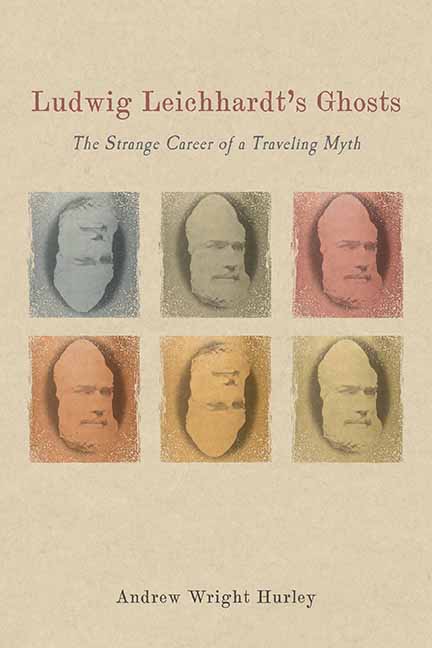Book contents
- Frontmatter
- Dedication
- Contents
- List of Illustrations
- Acknowledgments
- Introduction
- Part I Colonial Entanglements
- 1 Discovering, Mourning, and Honoring Leichhardt between Australia and German-Speaking Europe, 1848–1858
- 2 Ferdinand Mueller, the Ladies Committee, and German-Australian Seekers of Leichhardt
- 3 Taking Leichhardt Home to Germany with Georg Neumayer
- 4 Uneasily Approaching the Centenary
- Part II Colonial Memories
- 5 An Interwar Interregnum, or Finding Leichhardt as a “Friend of the Aborigine”?
- 6 Nazi Leichhardt
- 7 Leichhardt the Cold Warrior
- 8 Leichhardt Explodes, with No End in Sight (including a concluding passage “The Ghost of a Chance”)
- Notes
- Works Cited
- Index
4 - Uneasily Approaching the Centenary
Published online by Cambridge University Press: 20 August 2020
- Frontmatter
- Dedication
- Contents
- List of Illustrations
- Acknowledgments
- Introduction
- Part I Colonial Entanglements
- 1 Discovering, Mourning, and Honoring Leichhardt between Australia and German-Speaking Europe, 1848–1858
- 2 Ferdinand Mueller, the Ladies Committee, and German-Australian Seekers of Leichhardt
- 3 Taking Leichhardt Home to Germany with Georg Neumayer
- 4 Uneasily Approaching the Centenary
- Part II Colonial Memories
- 5 An Interwar Interregnum, or Finding Leichhardt as a “Friend of the Aborigine”?
- 6 Nazi Leichhardt
- 7 Leichhardt the Cold Warrior
- 8 Leichhardt Explodes, with No End in Sight (including a concluding passage “The Ghost of a Chance”)
- Notes
- Works Cited
- Index
Summary
BOTH THE LETTER EDITION and new, tantalizing rumors about an expedition survivor gave a fillip to cultures of Leichhardt memorialization toward the end of the nineteenth century. Indeed, in Australia the 1880s marked the beginning of another conjuncture in Leichhardt commemoration, but not necessarily in the way that either the repatriated Neumayer or the occasionally embattled (but now ennobled) Ferdinand von Mueller would have wanted it. If the death of former personal associates of Leichhardt’s, including the venomous Daniel Bunce (†1872) and the kindly Rev. W. B. Clarke (†1878), meant that “the mystery [became] part of [Australian] national heritage,” then what sorts of social memories could emerge as the Australian colonies headed toward federation in 1901 and then war, as Germany moved into the Wilhelmine era (1890– 1918), and as the centenary of Leichhardt's birth in 1913 approached? What sorts of historiographical, material, and especially literary commemoration could emerge? How did the worsening political relations between the two lands, during the New Guinea Crisis, the Boer War, and after, impact on images of Leichhardt? Were these memory cultures completely bifurcated, or did they coincide?
The missing Leichhardt had long been the subject of speculation, fantasy, and folk tale, or what Georg Neumayer called “rumors that surface[d] like epidemics.” In earlier times, colonial society took these rumors more or less seriously, as we saw in chapter 2, since they spoke to anxieties about the interior, as well as offered a pretext not only to seek out traces of the missing Leichhardt, but also to undertake other useful things besides. Certain rumors in the early 1880s topped them all, however. In February 1880 the Queensland bushman Jack-Dick Skuthorpe made fantastic claims, which he continued to sporadically air through that year and the next, that he had discovered relics of Leichhardt's and August Classen’s, and even encountered the latter's so-called “half-caste” children. In fact, Skuthorpe's tale was the repetition of an earlier episode. In 1871, an imprisoned bushman-cum-bushranger called Andrew Hume had claimed that he had located and spoken with Classen and his children when roaming around Queensland in the mid-1860s.
- Type
- Chapter
- Information
- Ludwig Leichhardt's GhostsThe Strange Career of a Traveling Myth, pp. 93 - 108Publisher: Boydell & BrewerPrint publication year: 2018



